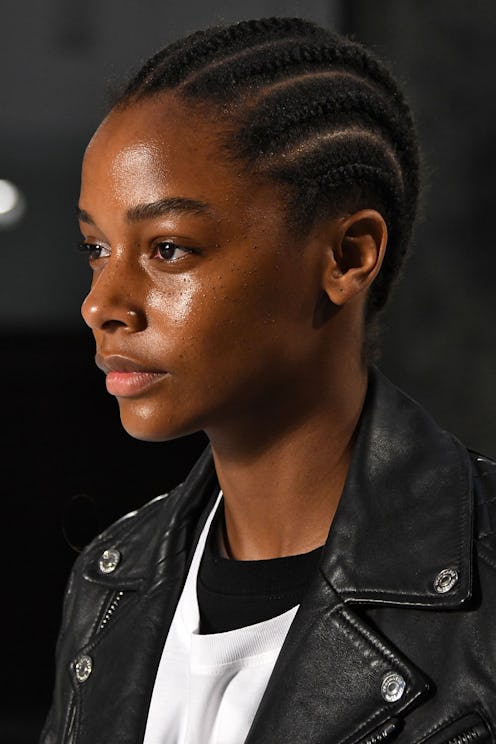(Beauty)
13 Resurfacing Serums To Try Instead Of Those Harsh & Aggressive Face Scrubs

You might have grown up thinking the only way to get rid of flaky dead skin was to slough it off with a harsh apricot scrub (guilty). These days, there are far less aggressive ways to achieve a smooth complexion — one being a resurfacing serum. But, like every type of skin care product, there are certain resurfacing serums to consider depending on your skin type.
"A resurfacing serum increases cell turnover and gently removes dead skin cells to reveal more youthful, glowing skin underneath," Dr. Onyeka Obioha, FAAD, a Los Angeles-based dermatologist, tells TZR. Resurfacing serums are formulated with chemical exfoliators, which are gentle, low-percentage acids, Dr. Hadley King, MD, FAAD, a New York City dermatologist, adds. These serums are typically grouped into two categories for chemical exfoliation: alphahydroxy acids (AHAs) and beta hydroxy acids (BHAs). "They dissolve the bonds that hold dull, dead skin cells on the surface of the skin so the skin will gently shed, revealing smoother, brighter skin underneath," the dermatologist says. "The difference is that while AHAs are water-soluble and work on the surface of the skin, BHAs are oil soluble so they can penetrate into pores so they are able to work on the surface of the skin as well as inside the pore."
If you have normal to dry, sun-damaged skin, Dr. King says AHAs (like glycolic acid and lactic acid) are often favored as they are proven effective in reducing the appearance of sun damage. On the other hand, BHAs are preferred for normal to oily skin, as well as acne-prone and clogged pores. "BHAs can help reduce black heads, white heads, pimples, and milia. BHAs also have anti-inflammatory, skin-calming properties so they are gentle enough even for sensitive skin prone to redness and or rosacea."
Before you get too excited and start applying these serums daily, read the product's label first. "If the label says you can use it every night or every other night, you can probably start to use it that frequently," Dr. Loretta Ciraldo, MD, FAAD, a Miami-based board certified dermatologist, tells TZR. "If you are using a medical grade product you will be recommend to start slowly with resurfacing products." For those with sensitive skin, she says it's best to start off using a resurfacing serum once a week for the first two weeks, and then gradually increasing to twice a week for the next two weeks. "Until you see enough improvement but not irritation, twice a week may be enough," she says. "But if you want to improve lines and wrinkles, acne scars, or uneven pigment you may need to advance slowly to nightly."
Ahead, find 13 resurfacing serums to add into your skin care routine. Your skin will be feeling as smooth as ever — just wait and see.
We only include products that have been independently selected by The Zoe Report’s editorial team. However, we may receive a portion of sales if you purchase a product through a link in this article.